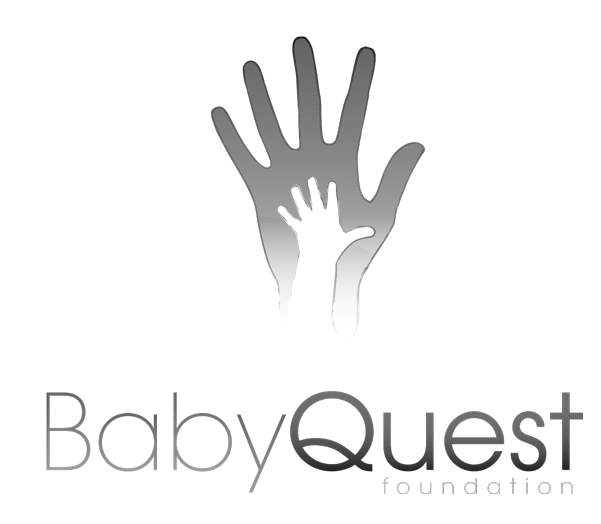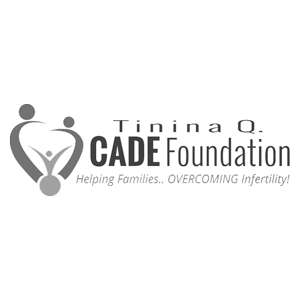Sperm Donation FAQ
Interested in the Sperm Donation process but unsure where to begin? We understand this can be an important and life-changing decision, and we are happy to provide clarity to any questions you may have.
Read through our Frequently Asked Questions below:
-
What is sperm donation?
Sperm donation is a process where a healthy man provides semen, containing sperm, to a sperm bank or fertility clinic for use in assisted reproduction. It helps individuals or couples, also known as Intended Parents, who cannot conceive naturally to achieve pregnancy.
-
Who uses donated sperm?
Donated sperm is used by individuals facing infertility. 1 in 6 people are impacted by infertility, and assisted reproduction technologies (ART) which rely on fertility services such as sperm donation allows these individuals the opportunity to realize their dreams of creating a family. Single women wanting to become parents or same-sex female couples may also utilize sperm donation to start their families.
-
Is sperm donation anonymous?
Many programs allow for anonymous donation, meaning the donor’s identity is kept confidential. However, open or known donations, where the donor’s identity is shared with recipients or offspring, are also an option depending on the program and legal regulations. At The Genesis Group, we respect both the donor and Intended Parents’ preferences around their journey, and we strive to facilitate open donations that allow donor-conceived children the opportunity to meet or know their donors.
-
What is the role and responsibilities of a sperm donor?
A sperm donor provides genetic material (sperm) to help individuals or couples create families. Donors must also adhere to guidelines, maintain healthy lifestyles, and commit to the donation program’s schedule, which varies depending on the individualized needs of their journey.
-
How does sperm donation work?
The process starts with genetic and medical screening and testing to confirm sample quality. Approved donors provide a semen sample through masturbation at a clinic or sperm bank. The sperm is then analyzed, frozen, and stored for future use in artificial insemination or IVF (in vitro fertilization).
-
Who can become a sperm donor?
For our sperm donation program, men aged 21-35 who are in good physical and mental health are typically eligible. Our Intended Parents look at criteria such as education, family medical history, and lifestyle habits in selecting a donor.
-
What are the health requirements?
Donors must be free of genetic disorders, chronic illnesses, and have a healthy family background. Additionally, donors must not have been diagnosed with any sexually transmitted infections within at least the previous two years. They must pass blood tests, urine tests, and genetic screenings as required by the clinics with which we work.
-
Do I need to be a non-smoker?
Yes, smoking negatively impacts sperm quality, so we require non-smokers or those who quit smoking well before donating.
-
Can I donate if I have children?
Yes! Having children does not disqualify you. In fact, proof of previous fertility can enhance your candidacy in some scenarios.
-
How is sperm collected?
Sperm is collected through masturbation in a private, sterile collection room at the sperm bank or clinic. Special containers are provided to ensure the sample is viable.
-
Do I have to abstain before donating?
Yes, donors are typically required to abstain from ejaculation for 2-5 days before donation to ensure the sample’s sperm count and quality are optimal.
-
How often can I donate?
Once approved, our donors are typically required to provide multiple samples within a 7-10 day period, depending on the requirements determined in the agreement between the donor and Intended Parents. Regular donation helps maintain a steady supply of viable samples, and donors must complete a unique donation for each journey they begin with different Intended Parents.
-
What medical tests are required?
Screenings include blood and urine tests for infections (e.g., HIV, Hepatitis), genetic disorder testing, and a sperm analysis to evaluate quality, motility, and count. A genetic consultation is also conducted in order to confirm genetic history and information.
-
Will my sperm quality be tested?
Yes, your sperm will be analyzed for motility (movement), morphology (shape), and count (number of sperm per sample) to determine viability.
-
Do I need a physical exam?
Yes, a comprehensive physical exam is required to ensure the donor is healthy and has no conditions that could affect the recipient or offspring.
-
Will my family medical history be reviewed?
Yes, an extensive review of your family’s medical history is required to identify potential genetic risks. We also conduct a genetic consultation for added accuracy and confirmation of family history.
-
Can I donate if I have a vasectomy?
No, since sperm is produced in the testicles, a vasectomy would prevent sperm from being included in your semen.
-
How much will I earn as a Sperm Donor?
At The Genesis Group, we allow you to determine and set your own compensation to ensure you are confident in your donation preferences.
-
Can I negotiate my sperm donor compensation?
Yes, your compensation is shown to Intended Parents during their donor search and is a factor in whether or not you receive match requests. We work to help you set a compensation amount you are not only comfortable with, but will be competitive in matching you with Intended Parents.
-
Are travel expenses reimbursed?
Yes! Donors who travel to an Intended Parent's IVF Clinic for donations will receive reimbursements for accrued travel expenses such as airfare, ground transportation and/or or lodging.
-
Will I have parental rights or responsibilities?
No, sperm donors waive all legal rights and responsibilities to offspring conceived using their sperm.
-
Can the child contact me in the future?
This depends on whether the donation was anonymous or open. In some cases, donor-conceived children can access the donor’s identity at age 18. At The Genesis Group, it is important for us to consider all sides of the donation journey and ensure we respect the donor, Intended Parents, and donor-conceived child.
-
Will I remain anonymous?
Anonymity is preserved in our program unless you choose an open donation, where your identity may be disclosed to recipients or offspring. You are assigned a Donor ID during the publishing of your profile for Intended Parents to view, and this assures that your identity is protected. You determine whether or not you intend to disclose your identity with Intended Parents on your profile and during the matching process.
-
What legal agreements will I need to sign?
You will sign contracts waiving parental rights, outlining confidentiality, and detailing compensation terms. Our donor agreement will detail all legal, financial, travel, personal, and other considerations as determined between you and the Intended Parent(s) through our agency.
-
Do I need to change my diet or lifestyle?
Maintaining a healthy lifestyle, including a balanced diet, regular exercise, and avoiding harmful substances, is essential for producing high-quality sperm. Our program is selective, as we look for candidates of the highest quality for deserving Intended Parents. If you are currently active and physically healthy upon approval, you should not have any significant changes to your current lifestyle.
-
Can I still have children in the future?
Yes, sperm donation does not impact your fertility or ability to father children later.
-
Will I know how many children are conceived from my sperm?
At The Genesis Group, your donations are unique to each journey you complete with Intended Parents. Your sperm will not be used beyond your single journey, so you will know when a child is born from your donations. Subsequent journeys will require unique donations, and transparency will always be ensured through our agency.
-
Are there risks involved in donating sperm?
There are no physical risks. At most, you may face emotional considerations about being a genetic parent. We work to ensure you are confident and comfortable about the process, requirements, match, and all other aspects of donation.
-
Will donating sperm affect my health?
No, donating sperm has no impact on your physical health or fertility.
-
Can I get infections from donating?
No, strict hygiene and medical protocols prevent any risk of infection during the donation process.
-
Can I donate sperm if I’m married?
Yes, marital status does not disqualify you as long as your partner supports your decision.
-
Can I donate if I’ve had COVID-19?
Yes, but you may need to meet specific requirements depending on your match, such as vaccination status, or wait until fully recovered.
-
Can I donate if I travel frequently?
Yes, but you’ll need to maintain a regular schedule during your journey for screenings and donations. You may be required to travel to an approved clinic or for a screening at no cost to you.
-
Will my sperm be used internationally?
This depends on your match. If your Intended Parents are international, we can work with sperm banks to ship samples to clinics worldwide.
General Information
Program Eligibility
The Donation Process
Screening and Testing
Compensation
Legal and Ethical Considerations
Lifestyle and Commitment
Risks and Side Effects
Extra Information

Be the Miracle and donate today.
If you’re ready to help a person or couple achieve their parenting dreams through sperm donation, The Genesis Group will take care of you each step of the way.






